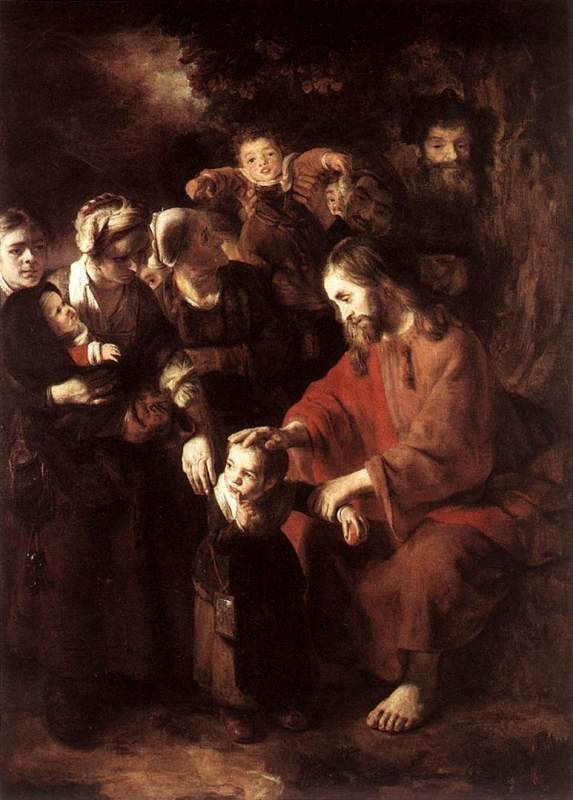Spiritual Sunday
Our rector Rob Lamborn recently explained to us that we are not to read anything warm and fuzzy into Jesus embracing little children. There’s a reason why, in this week’s lesson, the disciples speak sternly to people bringing their children to Jesus. Children at that time were essentially nobodies until they grew older.
Jesus, therefore, turns conventional wisdom on its head when he says,
“Let the little children come to me; do not stop them; for it is to such as these that the kingdom of God belongs. Truly I tell you, whoever does not receive the kingdom of God as a little child will never enter it.” And he took them up in his arms, laid his hands on them, and blessed them.
It was not until the 18th century and the Romantic revolution that people began to see children as special conduits to the divine, as Wordsworth does in Intimations of Immortality. He thinks back to his younger days, remembering,
There was a time when meadow, grove, and stream,
The earth, and every common sight,
To me did seem
Apparelled in celestial light,
The glory and the freshness of a dream.
And later:
Not in entire forgetfulness,
And not in utter nakedness,
But trailing clouds of glory do we come
From God, who is our home…
Before Wordsworth and Rousseau, however, children were pretty much seen as they had been in Jesus’s day, which was as imperfect adults. Perhaps it was because of high infant mortality, perhaps because children couldn’t contribute much to society until they were older. In any event, a little boy or girl was not regarded (to quote again from Intimations) as a “Mighty prophet” and a “Seer Bless’d” “on whom those truths do rest,/Which we are toiling all our lives to find.”
That’s why I was so struck by Henry Vaughan’s “Retreat,” written in the mid-17th century–which is to say, a century ahead of its time. It’s as though the poet, reflecting upon Jesus’s words, has rethought his childhood and come to see it very differently than did his contemporaries.
Anticipating Wordsworth, Vaughan feels like he is closer to God because he has just walked “a mile or two from my first love.” (Wordsworth talks of children sporting on the shore and hearing “the mighty waters roaring evermore.”) Also, like Wordsworth, he talks of how his younger self can see a glimpse of the divine in “some gilded cloud or flower.” Encountering sin as he grows older, he observes, “Some men a forward motion love;/ But I by backward steps would move.” And also, “O, how I long to travel back/ And tread again that ancient track!”
Or as Jesus puts it, “Truly I tell you, whoever does not receive the kingdom of God as a little child will never enter it.”
Retreat
Appointed for my second race,
Or taught my soul to fancy aught
But a white, celestial thought;
When yet I had not walked above
A mile or two from my first love,
And looking back, at that short space,
Could see a glimpse of His bright face;
When on some gilded cloud or flower
My gazing soul would dwell an hour,
And in those weaker glories spy
Some shadows of eternity;
Before I taught my tongue to wound
My conscience with a sinful sound,
Or had the black art to dispense
A several sin to every sense,
But felt through all this fleshly dress
Bright shoots of everlastingness.
O, how I long to travel back,
And tread again that ancient track!
That I might once more reach that plain
Where first I left my glorious train,
From whence th’ enlightened spirit sees
That shady city of palm trees.
But, ah! my soul with too much stay
Is drunk, and staggers in the way.
Some men a forward motion love;
But I by backward steps would move,
And when this dust falls to the urn,
In that state I came, return.
